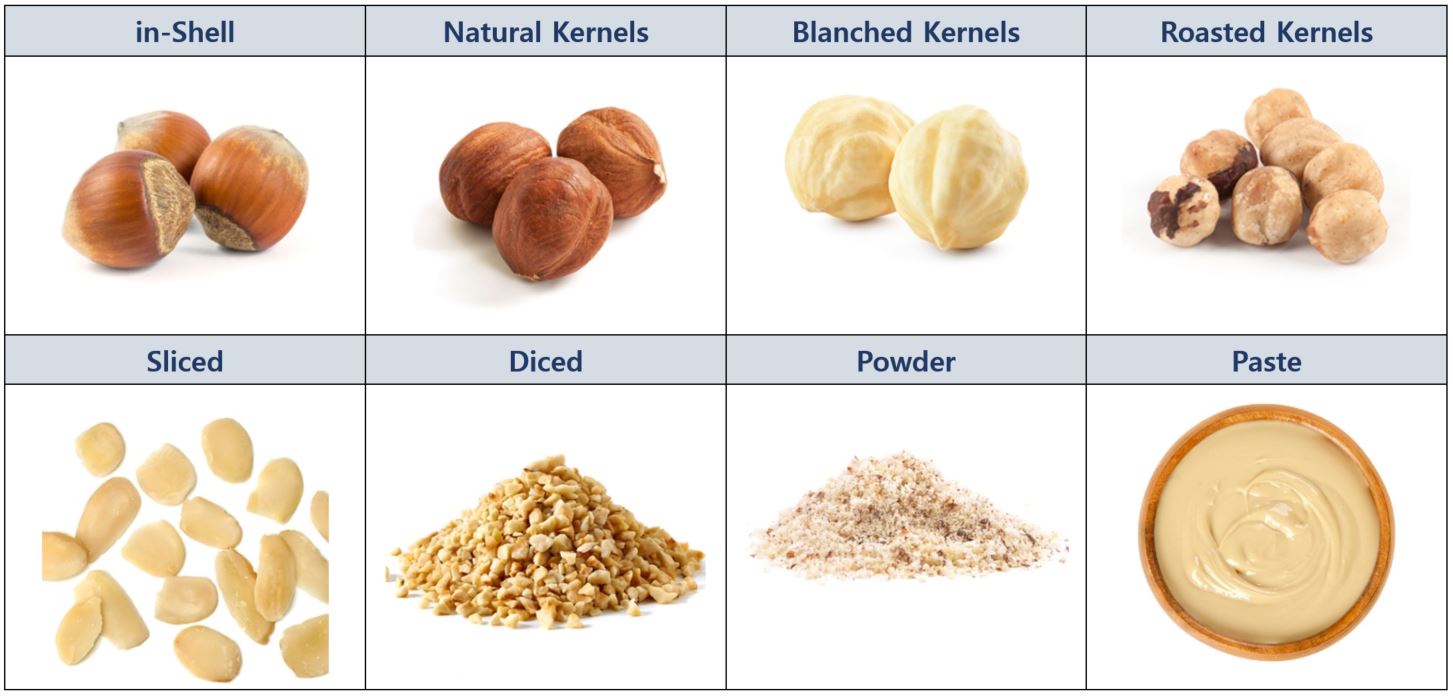You’re Not Too Far behind to Catch Up!
As hazelnut season commences in September for Turkey, Tridge is experiencing a growing number of enquiries from buyers. As Turkish hazelnuts are known for the best quality, Tridge has recently engaged with multiple suppliers in Turkey in order to fulfil different needs. With such wide variety of available options, Tridge was able to connect a leading confectionery producer in South Korea with a hazelnut paste supplier in Turkey. In addition, we are receiving a growing number of enquiries from European countries such as Germany and Italy.
Join Tridge today to seize new hazelnut trade opportunity that perfectly fits your desired specification at the most competitive price.
Why Turkey?
Hazelnut orchards are native to countries with moist winters and cool summers. For this reason, most of the hazelnut producers are located in the northern hemisphere within 30km of the coast, such as the Black Sea in Turkey and the Atlantic coast in France. In particular, Turkey is known to produce the best quality hazelnuts, accounting for over 70% of the world’s production.
Hazelnut production in Turkey can be divided into two sub-regions eastern and western part of the Black Sea coast, where eastern regions include provinces such as Ordu, Giresun, and Trabzon. Western regions consist of provinces such as Samsun, Sinop, and Kocaeli. Turkish hazelnuts are classified into two groups: Giresun and Levant.
Giresun quality is the type of hazelnuts grown in the entire province of Giresun and in certain districts of Trabzon province. Giresun quality hazelnuts are known for its superior quality with highest fat content and thus priced higher than that of Levant quality.
Levant quality is the common name given to all hazelnuts that are grown in regions other than the region of Giresun quality hazelnut. Called Levant Akçakoca, Levant Ordu, Levant Trabzon or Levant Samsun depending on the province of which they are grown in. Levant hazelnuts contain lower fat compared to the Giresun quality but with higher fat content and better flavour than those grown in other countries.
Why Tridge?

Featured: different traded forms of hazelnut
In recent days, hazelnuts are not only consumed as a whole, but more in different forms for a wide range of confectionery uses such as coffee and chocolate snacks. Turkey used to export hazelnuts mostly in a natural raw form, but due to growing demand from confectionery industry, the nation started exporting in various processed forms such as powder, paste, roasted, and more.
Tridge has recently engaged with a wide range of Turkish suppliers that are able to fulfil different demand from buyers. Our suppliers provide both Giresun and Levant qualities in all different processed forms. Hazelnut price significantly differs according to the traded form, quality, size, variety, and more. With such multiple factors to consider, it is difficult to determine whether a buyer is paying the right money for their order. Tridge connects buyers with suppliers who meet the required specifications at the most competitive price. For Suppliers, we identify trade opportunities with genuine buyers from various different regions. Through our distinctive network of world-wide scope local agents, we identify the most competitive condition customized for every buyer and supplier. Seize new hazelnut trade opportunities with Tridge today.
Contact Us:
Editor: Eunyoo Chang / eunyoo.chang@tridge.com
Sourcing Team Expert: Elly Lee / eunjeong.lee@tridge.com
Or request for quotation through: http://www.tridge.com/inquiry